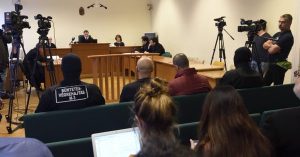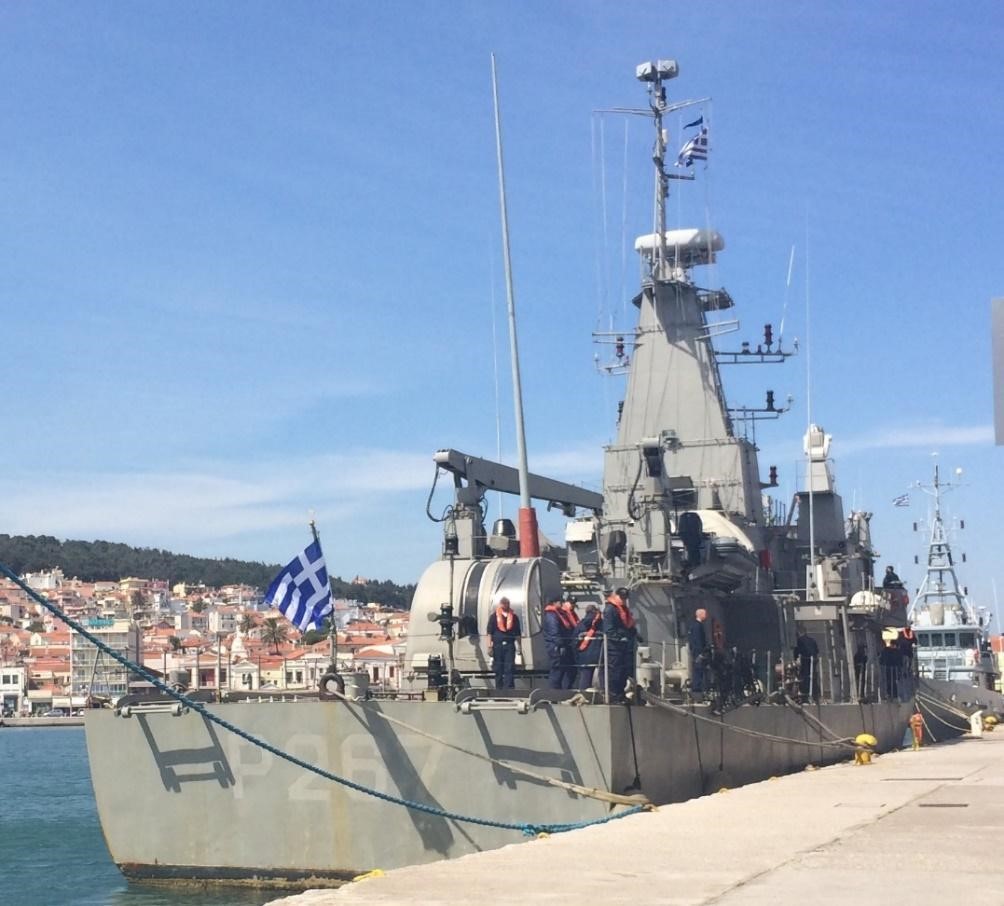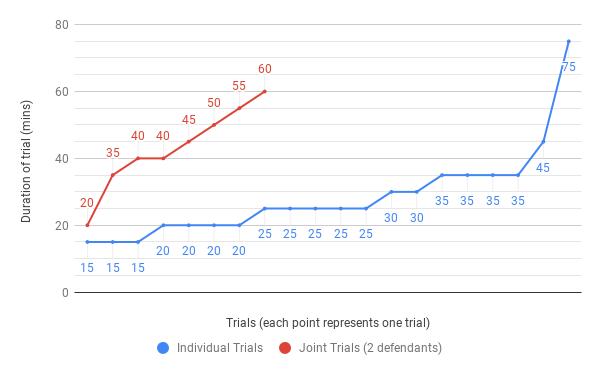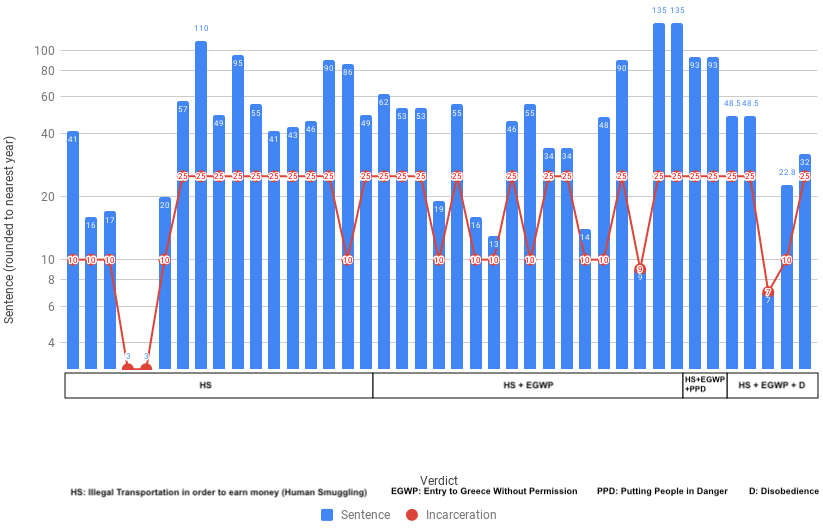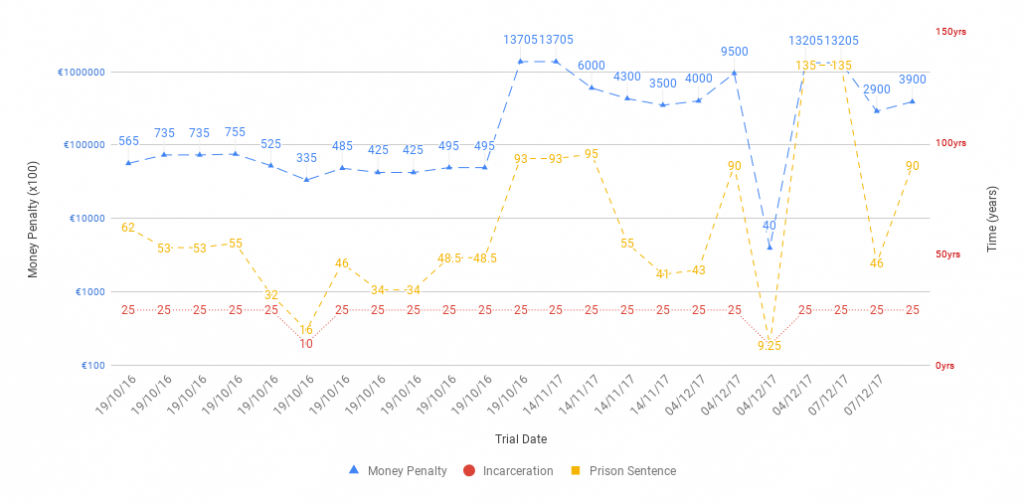first published on https://www.borderline-europe.de/unsere-arbeit/gemeinsames-solidarit%C3%A4tsstatement:
Solidarity statement: Freedom for Hamza & Mohamed
The European Union must stop the arbitrary incarceration of refugees and migrants
We express our solidarity with Hamza Haddi and Mohamed Haddar who are currently being held in pre-trial detention in Komotini, Greece. Both are facing long prison sentences because they are being wrongfully and arbitrarily accused of “smuggling”.
Hamza Haddi and Mohamed Haddar are Moroccan citizens who fled their country searching for protection and better living conditions, Hamza Haddi in particular is a known political activist who was hoping to be granted political asylum in Europe. In Morocco, he is facing political persecution for his activities during the Arab Spring as well as for his engagement with the Moroccan Human Rights Association L’Association Marocaine Des Droits Humains AMDH. He has been imprisoned three times and, together with his family, been constantly targeted and intimidated by Moroccan authorities. Hamza is a political refugee.
With Europe’s ever-increasing closure of borders and the impossibility for refugees to legally enter Europe and claim asylum, they were forced to embark and risk their lives on a makeshift boat. Hamza, who had fled from Morocco together with his brother Yassine went on to meet two companions on the way; Reda and Mohamed in Turkey. There, they spent only a few days before attempting to cross the Evros river that marks the border between Turkey and Greece in July 2019.
In Greece, the four arrived, only to be immediately arrested by Greek border police. But not enough. Hamza Haddi and Mohamed Haddar are now accused of and are facing trial for the “smuggling” of two persons – one of them being Hamza’s own brother Yassine!
The accusations against Hamza and Mohamed are clearly unfounded. They are refugees, not smugglers.
Their companion Reda was coerced into signing a testimony that is now being used to wrongly accuse Hamza and Mohamed as being the smugglers. Reda can neither speak nor read Greek and later confirmed that the written document does not match his statement.
Consequently since July 2019, Hamza and Mohamed have been held in pre-trial detention in Greece and are facing more than ten years of imprisonment each. The basis of their trail is placed upon a testimony signed under pressure and without an interpreter.
We are calling for their immediate release!
The case of Hamza and Mohamed is unfortunately not an isolated case but paradigmatic for yet another facet of Europe’s policy of closing borders and deterrence. While European supporters or so-called “human rights defenders” such as Carola Rackete or the iuventa10 have recently received a lot of attention and support after having become the target of increasing criminalisation, there is hardly any information nor support for those without a European passport facing the very same accusations. However, it is them who constitute the majority of those being arrested and imprisoned in Italy and Greece on grounds of alleged “smuggling” and “aiding illegal immigration”. Arrested immediately upon arrival, a lot of them disappear unknown and unheard of and with no access to support from outside.
The basis for this is Greek legislation that considers any person found to have driven a vehicle across Greek borders, entering Greece without required documentation, as a smuggler.
The arrests as well as trials that follow these often-unfounded accusations of smuggling are arbitrary. Police officers might accuse the person holding the tiller to steer the boat, or the one who communicated with the coast guard to call for help or simply someone who speaks English, to be a smuggler. In Greece, the average trial lasts only around 30 minutes, leading to an average sentence of 44 years and fines over 370.000 Euro. Suspects, or what we would deem ‘victims’ of this unjust legislation, usually have limited access to legal assistance, most of them relying on public defenders. Observers voice concerns about a “shocking lack of deep processing”, reporting that judgements are pronounced despite lack of evidence and poor quality of translation.
This statement is to express our solidarity with Hamza Haddi and Mohamed Haddar and all those criminalized and deprived of their basic rights in the European Union’s proclaimed fight against “smugglers”. We call on everyone to condemn the arbitrary application of anti-smuggling laws against people on the move, who are often already in fear of their lives. We denounce the exploitation of the vulnerable situation of asylum seekers by the EU member states, leaving them without the means to properly defend themselves.
Together with the Hamza Haddi and Mohamed Haddar support committee we demand:
• The immediate release of Hamza Haddi and Mohamed Haddar.
• All charges against them to be dropped, and their innocence to be recognized.
• Hamza’s asylum application to be accepted and his asylum granted.
• Regularisation of the situation of Hamza and Mohamed, and freedom of movement for all.
We further demand:
• Freedom for all those that are suffering the same fate, being imprisoned in Greek and Italian prisons because they were looking for a better life.
• A change in the Greek and Italian law in order to remove the legal grounds for these arbitrary arrests and convictions.
–> Attend the trial of Hamza and Mohamed on February 4th 2020 in Komotini, Greece!
–> Donate for their legal defence: https://www.lepotsolidaire.fr/pot/94duqw1k
– ADIF Associazione diritti e frontiere, Fulvio Vassallo Paleologo, Italy
– Adopt a Revolution
– Alarm Phone Watch the Med
– Prof. Dr. Annita Kalpaka, University Hamburg
– Antina Plath, Initiative Schwarze Menschen in Deutschland, Germany
– ARCI Porco Rosso, Palermo
– Prof. Dr. Astride Velho, Germany
– borderline-europe e.V., Germany
– Borderline Sicilia Onlus, Italy
– Carola Rackete
– Centre for Peace Studies, Zagreb
– Clandestina Thessaloniki, Greece
– Christian Peace Maker Team Lesvos, Greece
– Délinquants solidaires, France
– Demokratische Juristinnen und Juristen e.V., Germany
– Esc-Infomigrante, Rome
– European Civic Forum, Switzerland
– European Democratic Lawyers – Avocats Européens Démocrates
– Harald Bauder, Ph.D., Ryerson University Canada
– Il Comitato di Base No Muos di Palermo, Italy
– Institute of Race Relations, Anya Edmond-Pettitt, United Kingdom
– iuventa10
– Judith Gleitze, borderline-europe, Palermo
– Kontakt- und Beratungsstelle für Flüchtlinge und Migrant*innen e.V., Germany
– La FASTI, Fédération des associations de solidarité avec tou-te-s les immigré-e-s, France
– L’Association Marocaine Des Droits Humains, Morocco
– Loubna Messaoudi, CEO Founder BIWOC* Rising, Berlin
– Marie Amoyi, Initiative Schwarze Menschen in Deutschland, Germany
– Migreurop, Observatoire des frontières, France
– mediale pfade, Germany
– Mobile Info Team, Greece
– Münchner Flüchtlingsrat, Germany
– Observatory of Solidarity, Milan
– Refugee Law Clinic Berlin, Germany
– Republikanischer Anwältinnen- und Anwälteverein, Germany
– Rete Antirazzista Catanese, Italy
– Sea-Watch, Germany
– Seán Binder
– Seebrücke, Germany
– Solidarité sans frontières, Switzerland
– Solidarity Watch, Belgium
– Statewatch, United Kingdom
– TPC Maison Solidaire, France
– You Can’t Evict Solidarity, Germany

 Nour Al-Sameh is 29 years old ٍSyrian who is unjustly imprisoned in Greece for 4 years now because he flee to Europe for refuge. Just like the Captain of the Sea-Watch Carola Rackete, he acted to save the lives of people on a boat in the Aegean Sea who would otherwise have drowned in the water.
Nour Al-Sameh is 29 years old ٍSyrian who is unjustly imprisoned in Greece for 4 years now because he flee to Europe for refuge. Just like the Captain of the Sea-Watch Carola Rackete, he acted to save the lives of people on a boat in the Aegean Sea who would otherwise have drowned in the water.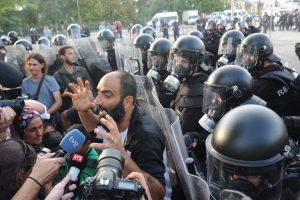 We are happy to tell you that 4 years after the brutal attack of the Hungarian state on the protests after the closing of the Roeszke border crossing and the arrests of the eleven people, the so called Roeszke 11, the last person Ahmed H. was finally able to leave the country to Cyprus, back to his family, on the 28th of September 2019.
We are happy to tell you that 4 years after the brutal attack of the Hungarian state on the protests after the closing of the Roeszke border crossing and the arrests of the eleven people, the so called Roeszke 11, the last person Ahmed H. was finally able to leave the country to Cyprus, back to his family, on the 28th of September 2019.